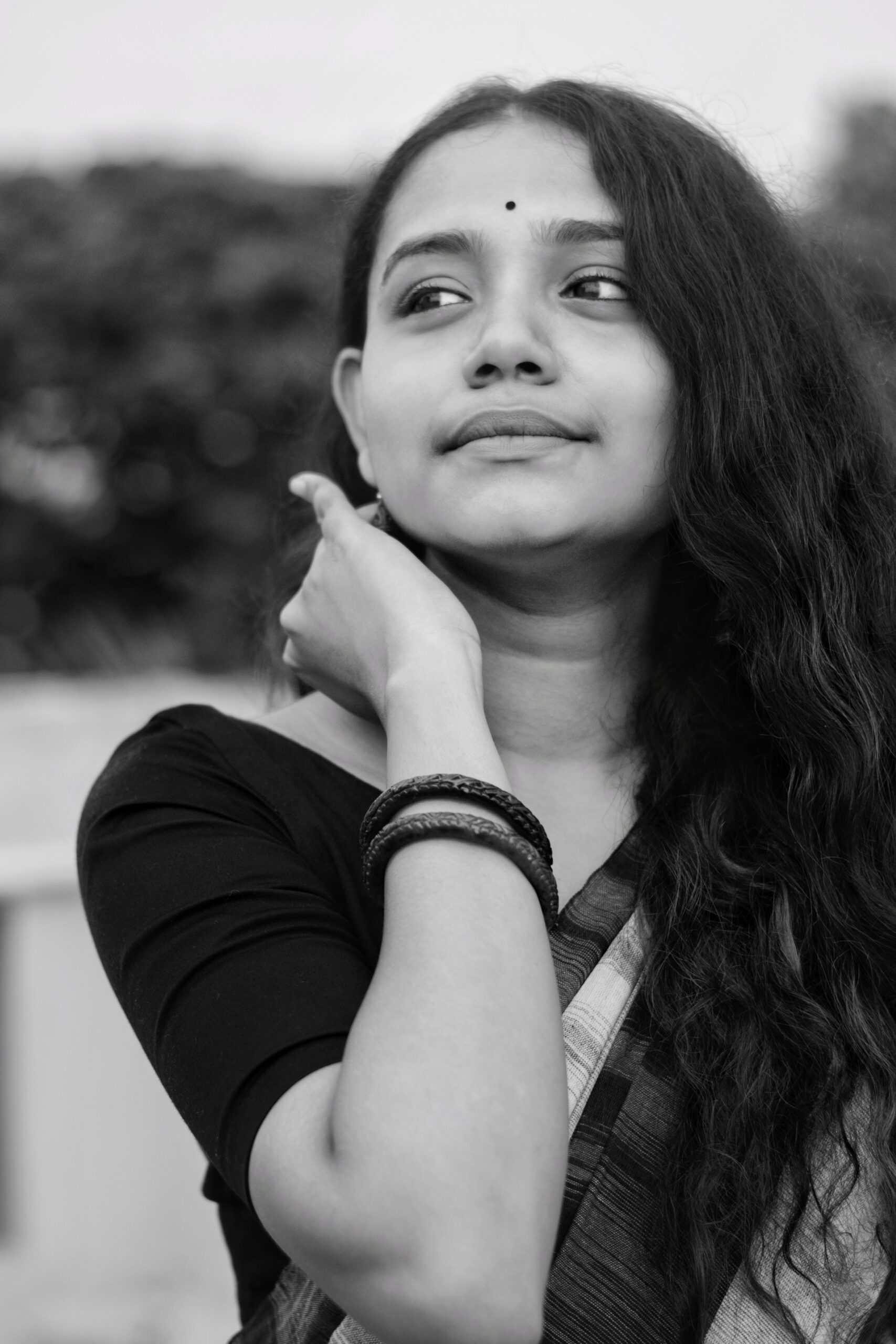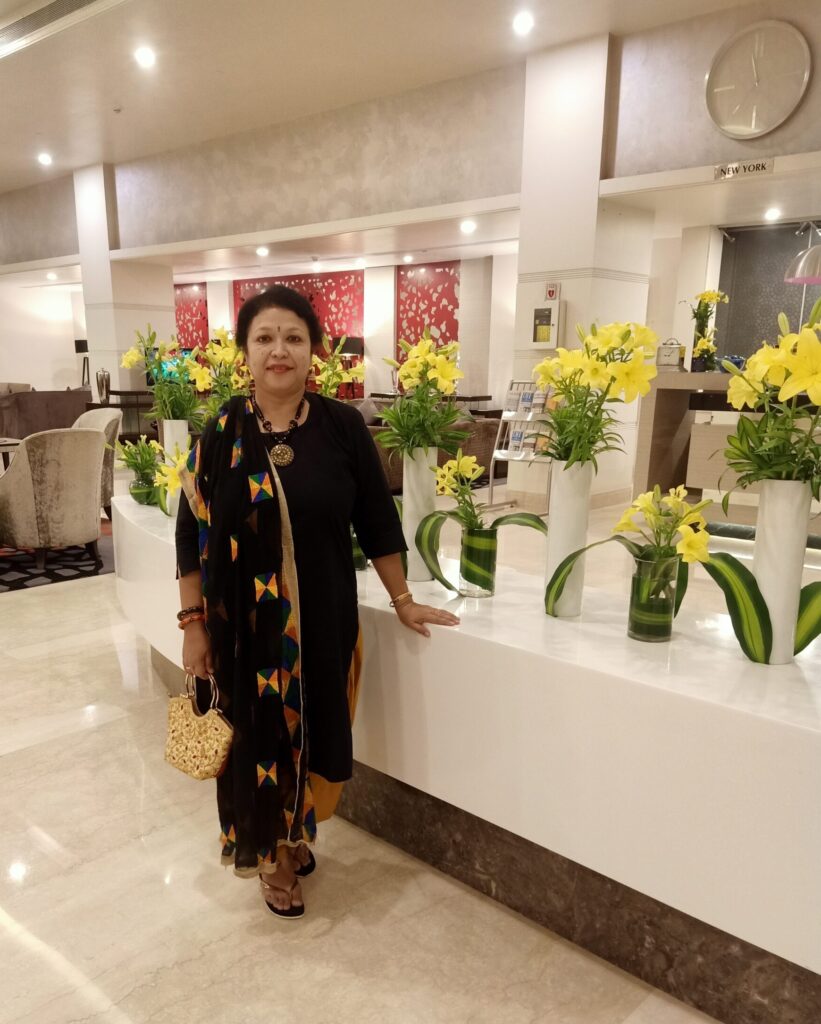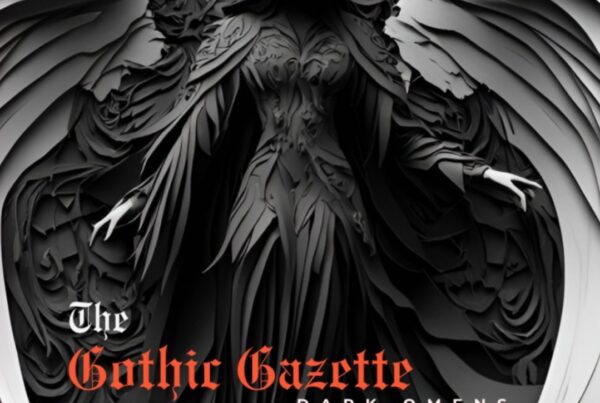Chittagong (Bengal), 1927
The charcoal chunks in the clay oven crackled and sputtered as the dying embers fought a losing battle to burn bright. The lonesome evening star, eternally pinned against an obsidian vault, seemed to cry out for company and kinship. Heaving and suspiring through the tall palash trees, now bereft of their crowning flame, the nippy winds hummed a mournful ditty.
How did you all gauge my mood, my guiding spirits?
Kajol gave a wry smile as she carefully placed some fresh dung cakes and firewood into the oven and stoked the fire. A few tangerine streaks momentarily leapt up, while Kajol plonked a large earthen vessel of rice on the fire. The large, open veranda that doubled up as a cooking area outside her modest two-room hut, had a rickety charpoy on one side, a few earthen pots and pitchers stashed away in one corner, and a handpump next to them.
Winter’s come in early this time…and looks like it’ll be a severe one!
Kajol wrapped her saree pallu tightly around to shield herself from the plummeting mercury. Then, stirring the contents of the pot, she tip-toed towards the entrance of the house. A sliver of moonlight cascaded over their hut, swathing the courtyard in a soothing, shimmering glow. In the distance, she could hear the sound of conch shells reverberating in the stillness of the night as the womenfolk performed their evening prayer.
Aah, faith – the last refuge for the hopeless, the betrayed, and the ignored.
Casting furtive glances over her shoulders, she waited. Her crisp, beige saree with a narrow blue border, coupled with a neatly tied thick plait at the back, lent an air of austerity to her 25-year-old petite frame. After what seemed an eternity, a lady, probably in her early thirties, seemed to emerge from the shadows, and walked briskly towards Kajol. She handed over a small, tightly knotted cloth bundle to Kajol and spoke in a whisper.
“Managed to get only a few books this time – hope you find them interesting. Master Da has issued specific instructions that all girls in Chittagong should be able to read and write.”
Kajol nodded, excitement and anticipation suffusing her face. She hungrily toyed with the bundle and then asked, “Pronoti di, when will you come next? I shall wait for you, then.”
“Not sure…I can’t promise anything…the government has intensified its surveillance. We are all under the radar now. It becomes difficult to move around freely. Anyway, I shall try and send word about our next meeting. Till then, stay safe and alert.”
With this, the lady turned around and disappeared into the night, as noiselessly as she had arrived. Kajol held the bundle close to her bosom for some time, trying to inhale its musty smell. In the twenty-five summers that she had been around, the opportunities for genuine joy and gratification for her, were very few and far between. And now that she had bagged one, she was not going to give it up in a hurry. She wanted to soak in the experience, savour it, and let it linger for as long as she possibly could.
1902 and later
The patriarch of the family had named the infant Mahashweta, the fair one, after his own mother. His firstborn grandchild was special and hence, warranted a special name. Mahashweta Roy Chowdhury sounded grandiose and elevated, belying their status of being small scale landholders. A few months into her birth, the misgivings started surfacing. The hushed whispers and veiled sniggers grew louder.
“Have you seen Roy Chowdhury babu’s granddaughter? How did she get such a complexion?”
“No one in the family is so dark…poor girl! Who do you think will marry her?”
“I heard her mother is in deep shock…she refuses to nurse the child, I believe!”
And so, the gossip flew thick and fast and very soon, Mahashweta’s grandmother decided to rechristen the child.
“But why do you want to change her name? What is her fault in all this, I wonder?!” her doting grandfather demanded.
“Nothing! It’s just that I no longer want to live in a fool’s paradise,” retorted her grandma, with an air of finality. “We’ve been burdened with a dusky granddaughter and I refuse to call her Mahashweta. I hate it when people smirk at the very mention of her name. Henceforth, she will be known as Kajol.”
And thus, Mahashweta’s dignity and human worth were besmeared with the ink of toxic prejudice, and she became Kajol – the dark one! Growing up, Kajol became a bubbly, spirited girl with fire in her heart and dreams in her eyes. From fetching firewood, to helping her parents in agricultural activities, to neatly finishing all the household chores, she became adept in all domestic affairs. However, her first love always remained studies. Attending the village school for a few hours in the morning was like a whiff of fresh air in her otherwise banal life. The smell of new books, the trials of learning a new word, the thrill of being appreciated by the school master, gave her a joy like no other. And when she stepped into the seventh grade, she prepared a sweetmeat as an offering to the gods! Very few girls in the village had crossed the threshold of primary school. However, the gods looked the other way and fate smirked, as destiny rolled the dice and sealed her fate, yet again!
“But Ma, I do not wish to get married so early! I want to study, finish school, and become a teacher. Please Ma, Baba…don’t force me into this!” Talks of marriage at the tender age of sixteen left Kajol devastated. But her desperate pleas fell on deaf ears. While the winds of change and emancipation had started blowing through Bengal in the early twentieth century, this nondescript village, unfortunately, remained out of its sweep.
Soon the village was abuzz with the news of Kajol being launched into the matrimonial market with much fanfare! And in all this fiasco, education happened to be the first casualty. Kajol had to quit studies, stay indoors, and hone her domestic skills. Wasn’t efficient homemaking the biggest attribute of a worthy woman? Proposals were diffidently sent out to the families of all eligible grooms in the vicinity. But surprisingly, the response was far from satisfactory. In a hemmed in hamlet such as this, news travelled faster than air, and the story of how Mahashweta had been downgraded to Kajol, was an oft discussed and much derided one! Quite a few families had come to ceremonially ‘see’ Kajol for their son, their piercing gaze invading every inch of her body and soul. She was asked to walk, talk, sing, turn around, untie her plait and let loose her dense tresses (there was no harm in being extra finicky!), and also allow them to examine her fingers and toes. And when she passed muster in all these, her complexion came in the way of their approval. Thus, rejection became a way of life for Kajol and proved to be her most loyal companion, too!
While Kajol’s parents spent the next few years trying to find a suitable match for her, the young girl in question, continued to fan her passion for the written word. During her school days, she had met Pronoti, a dynamic young lady who occasionally visited the local school to gift books and sweets to the children. She was an active member of Anushilan Samiti, the nationalist group of Bengal, helmed by the revolutionary Surya Sen, aka Master da. The group promoted both physical fitness and educational and moral development as the first step towards gaining India’s freedom. Her fiery, hard-hitting oration and intense nationalist fervour had deeply impacted Kajol. Pronoti, too, had recognised a rare spark in Kajol. Even after leaving school, they continued to stay in touch, albeit covertly. These secret meetings not only salved Kajol’s burning desire to know about the world outside but also fanned her urge to contribute actively to the ongoing freedom struggle. Pronoti gave her material to read – books on literature, history, geography, elementary science, and numbers – whatever Kajol missed in school was more than made up by diving into the fascinating world of letters and scooping up pearls of wisdom and practical knowledge! Her dark skin tone may have closed the doors of marriage but her inner world always remained animated and illumined, thanks to Pronoti’s able support and her own diligence.
*****************
“Kajol, why do you look so preoccupied? Look at those vessels…the floors…the laundry…still not done! Have you been daydreaming all this while?!”
Kajol deftly stashed away her cache of books under a pile of linen, afraid she might be caught reading. With leaden steps, she went out into the courtyard and started scrubbing the clothes. After some time, as she paused to tuck a few loose hair tendrils behind her ears, she saw a group of austerely attired young girls, book in hand, heading towards the village school. How she wished she were one of them!
A few evenings later, Kajol found her father unusually upbeat. Apparently, the zamindar of a neighbouring village had asked for Kajol’s hand in marriage. Her parents were on cloud nine!
“Joy Ma Durga,” Kajol’s mother fervently joined her hands and closed her eyes in supplication, tears streaming down her lined face, “destiny has finally decided to smile upon our child. When the whole world has written her off, Biswas Babu has come to our rescue with this proposal. How can I ever repay his favour!”
“You’re right, Kajol’s mother… I had almost given up hopes of seeing my daughter as a bride. What’s more, Biswas Babu doesn’t want any dowry. Isn’t that a windfall for us?!” Kajol’s father chimed in, still looking dazed at this sudden turn of events.
Now it was Kajol’s turn to intervene. She had been in a severe turmoil all this while. This was her chance to speak her mind.
“But Baba, Biswas zamindar is some forty-four years old against my twenty-five…how did he even forward this proposal?”
Kajol’s parents looked thoroughly scandalised! How could a young girl discuss her own marriage and opine on it? Had she forgotten all the carefully curated tradition that had been bestowed on her since birth? This was sheer blasphemy!
“Not another word, Kajol! You should feel infinitely blessed to have found a match in such a well-reputed, affluent family. You’re 25, still unmarried, with ordinary looks and a dusky complexion to boot – who do you think will want to marry you?” Her father uttered these words with utter insensitivity. “We have summoned Pandit ji tomorrow to match your horoscope and fix the nuptial date.” Here was a man who brooked no dissent and Kajol knew it only too well!
That night was the longest Kajol had ever experienced. Doubt and dilemma took turns to crisscross her turbulent mind. Time was at a premium and she had to decide. And act. After spending close to three hours, weighing the pros and cons of her situation, Kajol made up her mind. Bundling up a few clothes, some essentials, and her biggest asset, her books, she stepped out of the house. Under the cover of darkness, she managed to reach Pronoti’s house where she stayed for the night. And when the first rosy hues of dawn kissed the onyx vault with hope and promise, Kajol finally crossed the Rubicon. Along with Pronoti, she boarded a bus to reach the district headquarters of Anushilan Samiti at Dhaka. The rising sun had bathed the entire countryside in a warm, golden light. The new day seemed to dissipate a contagious joie de vivre, that resonated with Kajol and her new found purpose in life. As the rickety bus trundled along the dusty, scabrous path, Kajol felt a rush of adrenalin sweep over her.
Whoever said, a woman couldn’t dare to dream, had obviously not travelled this path, Kajol smiled to herself.
This was my winning entry for the Women’s Day short story writing contest organised by WriteFluence Publishing House in March 2022. It is now a part of their anthology titled Out of My Box II.
P.C. Angshu Purkait on Unsplash









